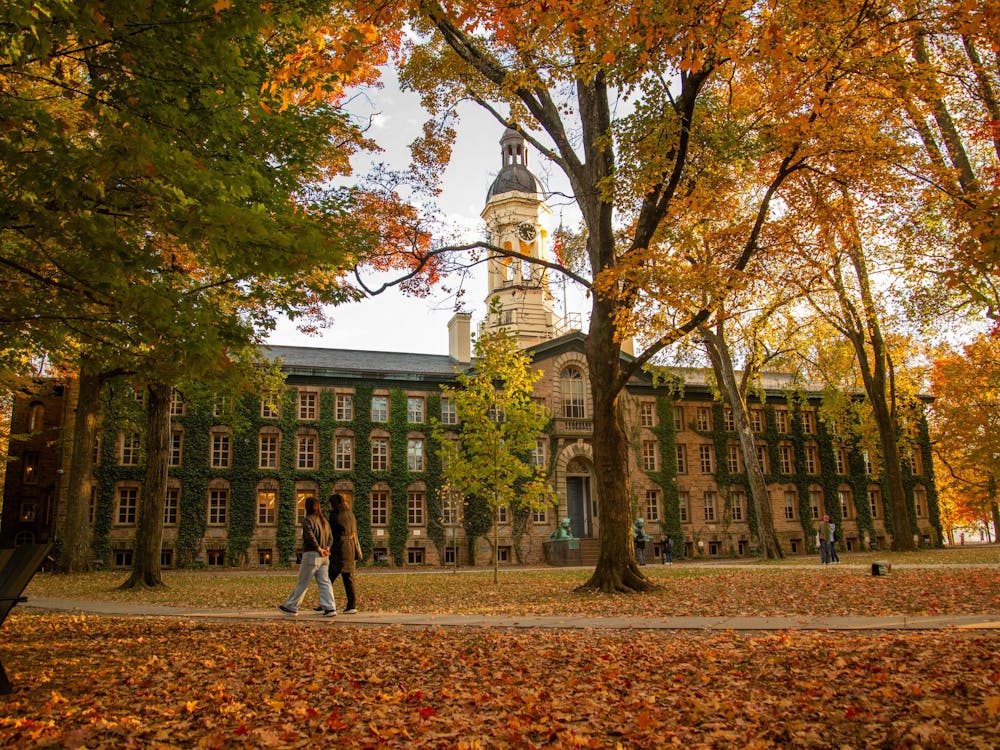For the past few weeks, whenever I went to dinner in the Rocky dining hall, I've been confronted by a lone sentinel. Armed only with a poster board and a petition, he asks all passersby to join him in the struggle to save the current dining hall. Until I first saw his display, I hadn't heard about the University's plans to redesign the residential dining experience practically from scratch. Scheduled to be completed right as the four-year residential colleges open, the new design is supposed to make the colleges more attractive so as to keep students in the colleges and off Prospect Avenue.
This is yet another example of how tone deaf the effort to recast Princeton has been. The main selling point of the new dining halls is supposed to be their non-institutional, welcoming and intimate atmosphere. None of those traits are concrete, and the success or failure of any is not measurable by any yardstick I can imagine. This is a redesign of Princeton's image outside the gate and not its actual eating spaces, an attempt to solve our perceived elitist problem by throwing vague, ill-defined but pleasant-sounding press releases at the issue.
This would be bad enough if the stated goals were worthy ones, but the premise behind the change is silly and, if completed, will likely have an actively negative impact. One of the reasons I have made friends this year is because I have sat with large groups of sometimes perfect strangers in the dining hall and gotten to know them. While I didn't become close to everyone I ate with, I did meet many of my friends this way.
Intimacy sure sounds warm and nice in a recruiting brochure or press release. College, however, isn't supposed to be about this kind of intimacy. College is about meeting new people and making new friends, forming relationships that last a lifetime with people we did not know. My main goal for my time here is to graduate with as many close friends as possible. Those forced, awkward conversations back in September and October which will allow me to fulfill this goal were made possible only by the available large communal (i.e. institutional) spaces, especially the dining hall.
More private dining options will do nothing to build that which is most lacking about the residential colleges: a sense of community. While the majority of my friends are from Rocky, few of those are from outside of Holder Hall and fewer still are from outside my and the adjacent two entryways. For the most part, my friends are the people I live right next to and that I took classes with. This, not an institutional feel, is Rocky's real problem and what should be addressed in any redesign.
In high school, I knew everyone in my grade partly because I was able to eat right next to them. While friends sat together, they could never sit alone in a booth apart from everyone else. We had no choice but to be members of the community. At Princeton, people all too often are separated into small groups of friends instead of engaging with everyone else because they have no choice but to eat in small groups. Longer tables running parallel the length of the hall would allow for larger groups of friends and improve our nonexistent bonds of community.
On the scale of a residential college with 200-odd freshmen, a community can only be formed by face-to-face encounters and personal interaction. The eating clubs have survived and flourished for so long because they realize this and have responded accordingly. My father remembers the Tiger Inn extremely fondly because he was friends with pretty much every single member. Ivy Club doesn't allow its members to start a new table until the first is full, forcing everyone to interact with one another and building a common bond between all the members. Both of these are true communities because they actively integrate the membership instead of facilitating self-segregation.
So here's my plea to Nassau Hall: before you turn the dining hall into a Starbucks, at least consider whether a more institutional feeling is worth it if we can have a community. I will gladly trade a little "intimacy" for a lot of camaraderie any day. Barry Caro is a freshman from White Plains, N.Y. He can be reached at bcaro@princeton.edu.







